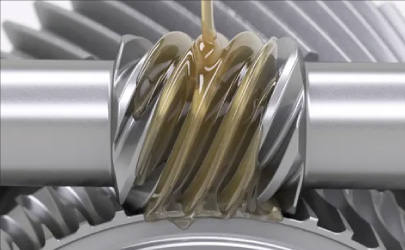Beyond Lubrication: How Full Synthetic Grease is Shaping the Future of German Manufacturing

The Germany Full Synthetic Grease Market exhibits robust volume growth across various end-user segments, fueled by an increasing demand for high-performance, durable, and energy-efficient lubrication solutions. Total market consumption is projected to rise from approximately 231,487 tons in 2025 to an anticipated 362,283 tons by 2032, translating to a solid CAGR of 6.6 percent. This upward trend emphasizes Germany's position as a leader in industrial innovation and highlights the growing adoption of full synthetic greases as vital components in precision engineering and sustainability-focused manufacturing. The trend is further supported by technological advancements, alignment with EU environmental standards, and a shift towards advanced machinery and electric mobility.
The automotive and transportation OEM segment dominates the Germany full synthetic grease market, capturing the largest share of consumption, which is expected to grow from 66,080 tons in 2025 to 108,641 tons by 2032, reflecting a CAGR of 7.4 percent. This robust expansion is largely attributed to Germany's reputation as Europe's automotive powerhouse, where leading manufacturers such as BMW, Mercedes-Benz, and Volkswagen are increasingly transitioning to electric and hybrid vehicles that necessitate thermally stable and low-friction synthetic greases. Full synthetic greases are now widely employed in EV drivetrains, bearings, and e-axle assemblies to optimize efficiency, minimize wear, and extend service life. The growing adoption of lightweight materials and high-speed components further strengthens the need for advanced lubrication systems.
The industrial machinery OEM segment follows closely behind, with a CAGR of 7.5 percent, growing from 42,037 tons in 2025 to 69,739 tons by 2032. This growth reflects the ongoing modernization of German manufacturing facilities under the Industry 4.0 initiative. The demands of automation, robotics, and precision tooling necessitate lubricants that can perform under high loads and varying temperatures without degrading. Full synthetic greases facilitate predictive maintenance strategies, enhance equipment uptime, and promote sustainability through extended drain intervals.
In the power generation sector, the highest CAGR of 8.9 percent is anticipated, with consumption increasing from 14,614 tons in 2025 to 26,493 tons by 2032. The transition to renewable and decentralized energy systems, particularly in wind and solar installations, is driving this growth. Synthetic greases are crucial for turbine bearings, gearboxes, and generators, where reliability and long service intervals are imperative. Bio-based and high-performance esters are gaining traction as Germany seeks to reduce its carbon footprint in energy operations.
The maintenance, repair, and overhaul (MRO) segment remains significant, expanding from 77,980 tons in 2025 to 117,533 tons by 2032, with a CAGR of 6.0 percent. This growth reflects ongoing industrial maintenance activities in the automotive, aerospace, and heavy engineering sectors. The uptake of synthetic greases for MRO applications is propelled by their extended re-lubrication cycles, reduced downtime, and compatibility with modern materials.
The aerospace and aviation sector continues to show steady momentum, projecting a CAGR of 4.2 percent from 12,462 tons in 2025 to 16,613 tons by 2032. Synthetic greases, especially those based on silicones and perfluoropolyethers, are essential for high-temperature, low-oxygen environments in aircraft components, offering stability and longevity. As Germany strengthens its aerospace supply chain and defense capabilities, the demand for specialized greases tailored to critical systems is expected to increase.
Meanwhile, the oil and gas and marine segments exhibit modest growth rates of 3.2 percent and 2.6 percent, respectively, due to mature infrastructure and a gradual shift to cleaner energy sources. Nonetheless, both sectors continue to adopt synthetic lubricants for offshore and high-pressure operations, benefiting from their resistance to oxidation and water washout. The "others" category, which encompasses industries such as rail, mining, and food processing, is projected to grow at a 4.1 percent CAGR, reflecting a steady diversification of grease applications in specialized environments where contamination control and compliance with safety standards are paramount.
In summary, the Germany full synthetic grease market presents a healthy mix of mature and emerging demand. The nation’s engineering prowess, combined with its commitment to sustainability, automation, and electrification, ensures the ongoing adoption of synthetic greases across various sectors. The strong compound growth in both OEM and MRO segments highlights that full synthetic greases have transitioned from niche products to essential industrial materials that drive efficiency, reliability, and long-term value creation within Germany's evolving industrial landscape.